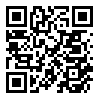Volume 14 -
mededj 2025, 14 - : 0-0 |
Back to browse issues page
Download citation:
BibTeX | RIS | EndNote | Medlars | ProCite | Reference Manager | RefWorks
Send citation to:



BibTeX | RIS | EndNote | Medlars | ProCite | Reference Manager | RefWorks
Send citation to:
Yazdani M, Tavakoli R, Niksadat N. Study the Effect of Small Group-Based Learning on the Self-Efficacy of Health Ambassadors Regarding the Disease of Salak in Comprehensive Health Service Centers of Borkhar City in 2024. mededj 2025; 14
URL: http://mededj.ir/article-1-533-en.html
URL: http://mededj.ir/article-1-533-en.html
Department of Health Education and Health Promotion, Science and Research Branch, Islamic Azad University, Tehran, Iran & Islamic Azad University of Tehran, Department of Research Sciences
Abstract: (1227 Views)
Background and Objective: Leishmaniasis is a vector-borne disease that is considered a public health problem. Prevention and control of this disease should also focus on empowering individuals in the community. By providing education and empowering groups, individuals' health behaviors can be improved.
Methods: The research is an educational intervention and a quasi-experimental study. The study population consisted of 49 health ambassadors residing in Borujerd County, who were divided into intervention and control groups. The data collection tool was a researcher-made questionnaire consisting of four sections. Training was designed in groups and in small groups to promote interaction, concentration, and greater effectiveness. Data analysis was performed with SPSS version 16 software.
Findings: A significant relationship was observed between the two intervention and control groups in terms of knowledge and self-efficacy scores regarding leishmaniasis using the results of an independent T-test. In the results of the paired T-test statistical analysis, a significant relationship was observed between the scores before and after training in the intervention group (P<0.05). The results of paired T-test analysis showed that after the educational intervention, a significant difference was observed between the level of self-efficacy of health ambassadors in the field of leishmaniasis and factors such as their level of education, age, and place of residence, compared to before the intervention.
Conclusions: The results showed that the educational intervention based on small groups caused a significant increase in the level of awareness and self-efficacy of health ambassadors in relation to leishmaniasis. This increase was also evident in various dimensions of self-efficacy, including education, information, support, and counseling.
Methods: The research is an educational intervention and a quasi-experimental study. The study population consisted of 49 health ambassadors residing in Borujerd County, who were divided into intervention and control groups. The data collection tool was a researcher-made questionnaire consisting of four sections. Training was designed in groups and in small groups to promote interaction, concentration, and greater effectiveness. Data analysis was performed with SPSS version 16 software.
Findings: A significant relationship was observed between the two intervention and control groups in terms of knowledge and self-efficacy scores regarding leishmaniasis using the results of an independent T-test. In the results of the paired T-test statistical analysis, a significant relationship was observed between the scores before and after training in the intervention group (P<0.05). The results of paired T-test analysis showed that after the educational intervention, a significant difference was observed between the level of self-efficacy of health ambassadors in the field of leishmaniasis and factors such as their level of education, age, and place of residence, compared to before the intervention.
Conclusions: The results showed that the educational intervention based on small groups caused a significant increase in the level of awareness and self-efficacy of health ambassadors in relation to leishmaniasis. This increase was also evident in various dimensions of self-efficacy, including education, information, support, and counseling.
Type of Study: Research |
Subject:
Special
Received: 2025/04/30 | Accepted: 2025/06/21 | Published: 2025/04/4
Received: 2025/04/30 | Accepted: 2025/06/21 | Published: 2025/04/4
Send email to the article author
| Rights and permissions | |
 |
This work is licensed under a Creative Commons Attribution-NonCommercial 4.0 International License. |

This work is licensed under a Creative Commons Attribution-NonCommercial (CC BY-NC)




